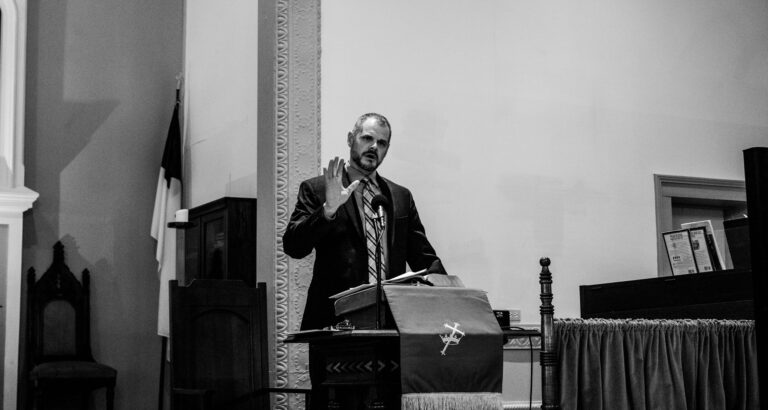Now have any of you ever heard a TED Talk? Google defines a TED talk this way:
A TED Talk is a short, impactful presentation or talk, usually around 18 minutes long, designed to share knowledge and ideas. TED (Technology, Entertainment, Design) is a nonprofit organization that hosts conferences and online platforms where experts from various fields deliver these talks, covering topics ranging from science and business to global issues.
TED talks are very interesting to watch, no doubt because they mingle information with technology and entertainment in a way that is very powerful. TED talks are built to persuade; they are built to convey information in an entertaining way.
An Ancient form of TED Talks
Interestingly, the first Century Corinthian church was familiar with a similar type of presentation. Corinth had its own version of TED talks—rhetoric—and it was extremely popular. Ancient rhetoric was basically the art of persuasion. The speakers would employ whatever means necessary to win the audience over to their side of a discussion or dispute. Of course, the practice of rhetoric is not wrong or evil per se but the way it was practiced in this time and place was problematic for various reasons.
These public speakers would have an enormous following very much like what our celebrities today do. Often gifted speakers would parade into new towns where they hoped to spread their fame with enthusiastic escorts.
When Paul brought the message of Christ into Corinth on his second missionary journey, his hearers would have expected him to employ the techniques and methods that were popular in that day and age—those used by the gifted practitioners of rhetoric.
Paul felt these pressures but was not going to play by these rules. He writes in 1 Corinthians 2:1-5:
And I, when I came to you, brothers, did not come proclaiming to you the testimony of God with lofty speech or wisdom. [One translation I was reading translates this verse this way: “I did not come with high-sounding rhetoric or a display of cleverness in proclaiming to you the mystery of God.”] 2 For I decided to know nothing among you except Jesus Christ and him crucified. 3 And I was with you in weakness and in fear and much trembling, 4 and my speech and my message were not in plausible words of wisdom, but in demonstration of the Spirit and of power, 5 so that your faith might not rest in the wisdom of men but in the power of God.
Paul is writing a polemic against the methods of these practitioners of ancient rhetoric. In the original Greek in verses 1, 4, and 5 Paul uses the word sophia three times to describe what his proclamation was not.
The word sophia in Greek means wisdom. There were people at the time known as sophists, taking their name from this word wisdom. The sophists set the bar in rhetoric, at this time and place. They were viewed as the model speakers.
But Paul is pushing back against the pressure to conform to these worldly standards of so called “wisdom.”
Why?
The Goal of Our Message
Because the aim of rhetoric as it was practiced in that time and place was not truth. It was persuasion. It was to get the audience on your side and win the debate. It was not concerned with truth. The goal, really, you might say, was about putting on a good show, what we today call entertainment. Truth was irrelevant. Truth was not the goal. Truth was secondary. It was an ancient form of a TED talk. Information and entertainment. Winning the debate was most important.
But Paul, by contrast, says his goal was to speak the truth. It was to impart wisdom. Another way of saying this is that Paul not only wants to convey truth but wants to convey it in a way that is truthful. He wants how he conducts himself in the process of conveying truth to reflect that same truth.
And what is that truth—that wisdom?
2 For I decided to know nothing among you except Jesus Christ and him crucified.
If we are to communicate the glorious truths of the Gospel we must communicate them in such a way that does not undermine the message, Paul says. The message of the cross, which is foolishness, cannot be dressed up in the garbs of so-called worldly “wisdom” to improve it or make it more palatable. It is the un-adorned message of the cross of Jesus that is true wisdom from above.
When we communicate the message of the cross clearly and truthfully, without gimmicks or tricks, those who embrace the message, embrace it for what it is. This proves or “demonstrates,” to use Paul’s word in 1 Cor. 2:4, the power of God through the message.
The message of the cross cannot be improved upon. It is the power of God for salvation (Rom. 1:16). Let us be faithful to proclaim the message as Paul received it and passed it on. We are stewards of these glorious truths, not inventors!



